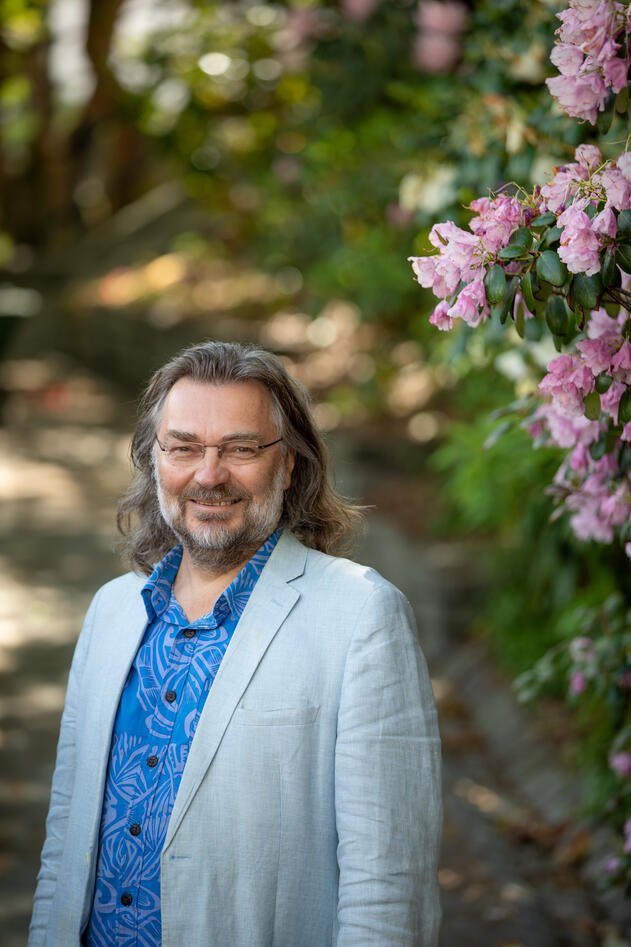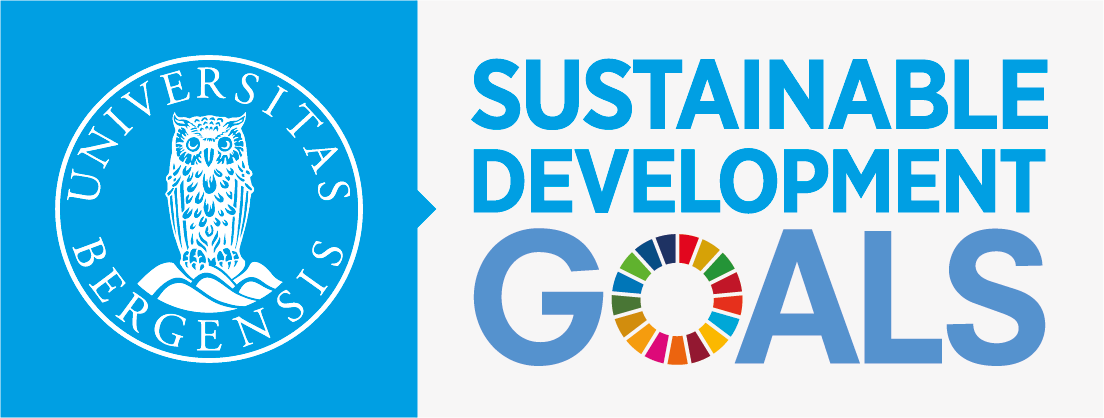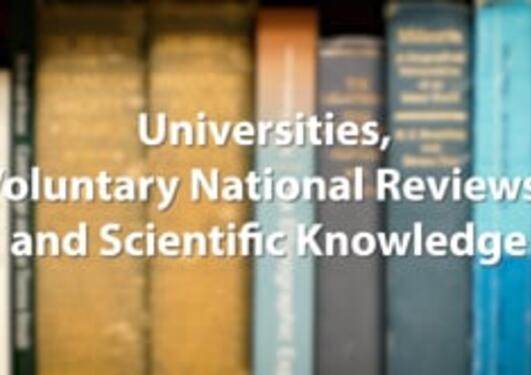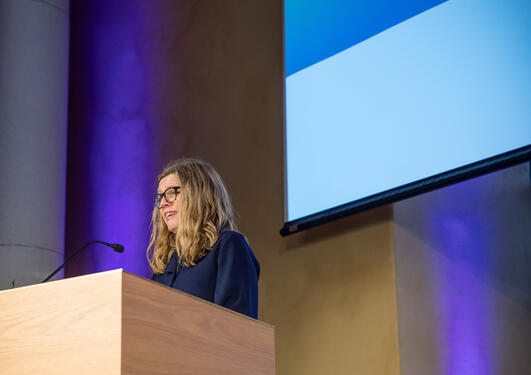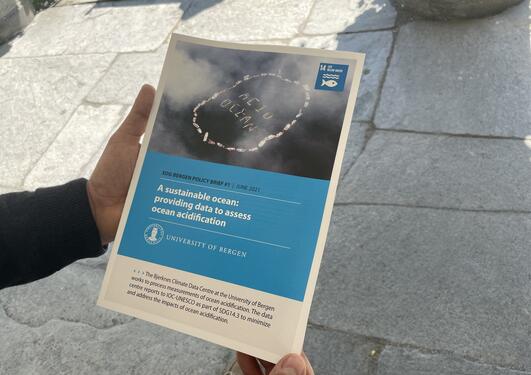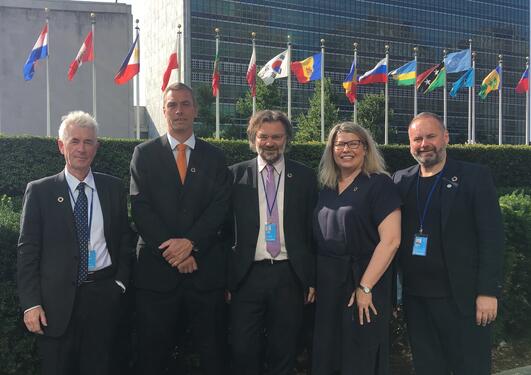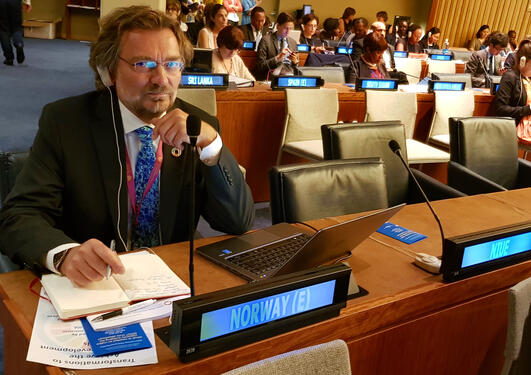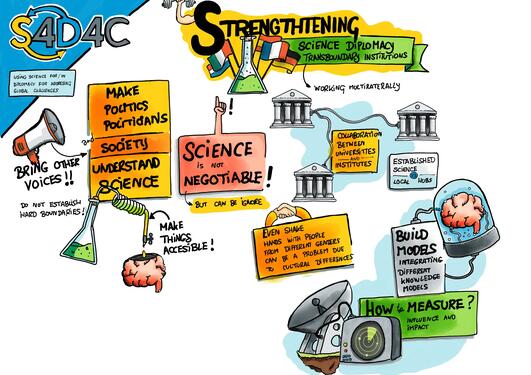International inspiration for local action
SDG Bergen Science Advice has provided input to the national SDG plan for Norway. Our input is inspired by the University of Bergen’s longstanding scientific advice towards the UN system and targeted approach to the 2030 Agenda.

Main content
Last autumn, SDG Bergen Science Advice (SDG BSA) participated in an event under the auspices of the United Nations Department of Social and Economic Affairs (UN DESA). UN DESA invited a number of actors from around the world to provide input to UN member states planning to submit Voluntary National Reviews (VNRs) in 2021.
Among those providing input were two universities to represent the sector globally – the University of Bern in Switzerland and SDG BSA on behalf of the University of Bergen. Professor and Scientific Director of SDG BSA Edvard Hviding put forward five main points based on our interaction with authorities and the UN system regarding the 2030 Agenda.
When Norway’s government asked for input to the national SDG plan for Norway, SDG BSA submitted proposals inspired by our international commitment and advisory role to the UN.
SDG BSA/UiB input to the national SDG plan for Norway:
Input to the Government's action plan for the SDGs from SDG Bergen Science Advice at the University of Bergen. Our input looks at how universities and research institutions can contribute with scientific advice in the implementation of the SDGs in Norway.
- The knowledge sector has a central global role in achieving the 2030 Agenda’s 17 goals and 169 sub-goals. Therefore, it is important that Norway continues to be in dialogue with and makes use of the university sector, not least through the sector's National Committee for the 2030 Agenda, to provide knowledge-based input in SDG-related work. This also applies to the specific processes surrounding the Voluntary National Reviews (VNRs) process. By obtaining knowledge, critical analysis and research-based data from the higher education sector, Norway will be better able to measure and analyse national progression in the implementation of the SDGs, as well as build insight into other nations’ SDG work.
- The 2030 Agenda and the SDGs constitute a procedural system in which various sub-goals must be achieved (such as so-called “maturing targets”) in accordance with a schedule from 2020 to 2030. It is crucial that Norwegian authorities actively use the higher education sector to analyse their achievement. specific sub-objectives when they mature in accordance with adopted plans. We propose that the SDG plan for Norway affirms this.
- Research-based knowledge and local knowledge must be seen in context. The national SDG plan must facilitate the exchange of knowledge across sectors, including by establishing arenas to ensure that this takes place. The higher education sector can contribute to this work by promoting interdisciplinary understandings that include perspectives from many areas of society locally, nationally and internationally.
- Since 2018, the government has invited the higher education sector, through the sector’s National Committee for the 2030 Agenda, to the high-level forum at the UN every July. Norway’s SDG plan must make this a permanent fixture, to ensure that scientific observations, advice and contributions are included in decision-making processes at the highest level in the UN system.
- The SDG for Norway must state that new forms of education must be established, which can contribute to transformative social development in line with the SDGs well before 2030, and that this is reflected in curricula at all educational levels.
- The plan must underline the unique national cooperation on the 2030 Agenda in Norway’s higher education sector, and this must be emphasized as a preferred model in Norway's international communication on the SDGs.
- Norway must develop national best practice scenarios for science diplomacy and scientific advice for sustainable development and STI (science, technology and innovation), preferably in a collaboration between Norway's UN delegation and UN DESA, which can profile such scenarios in the context of HLPF and other events.
